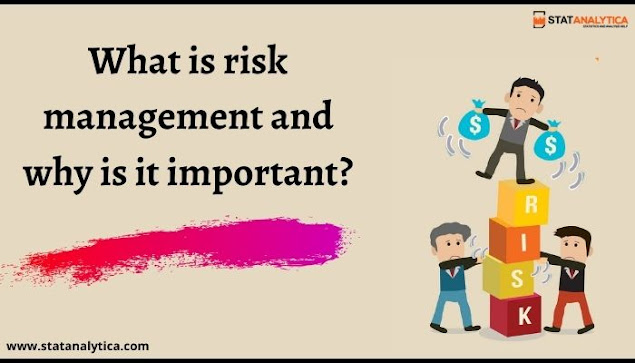Unpredictable situations, such as a major calamity, a loss of funds due to fraud, or injury to staff, customers, or visitors to your premises, may all disrupt operations. Any of these incidents could cost your company money or cause it to shut down for good. It would be best if you had a risk management plan in place to prepare for the unexpected, mitigating risks and unnecessary costs before they arise. Anticipating potential risks or accidents and putting in place a risk management plan would save money and ensure the company's future. If you need help with a risk management assignment, I suggest visiting our risk management assignment help page, where our experts will gladly assist you.
The process of defining, analyzing, and reacting to risk factors that occur over the course of a company's operations is known as risk management. Effective risk management means acting proactively rather than reactively to try to change future outcomes as much as possible. As a result, effective risk management will minimize both the probability of a risk occurring and the consequences of that risk.
Risk Management: Its Importance
This is where risk management becomes a critical component of the overall business plan. Such a mechanism mitigates the effect of any negative incidents or developments that may otherwise be devastating by recognizing and analyzing possible risks to the organization. Take a closer look at the role of risk analysis and recognition in business to see how.
1. It Helps in the Reduction of Uncertainty
Uncertainty of any form is bad for a company, and it's difficult to measure by definition. "Danger comes from not understanding what you're doing," Warren Buffett once said. As a result, knowing how to secure your company requires an awareness of its internal and external aspects.
A key component of risk management recognizes when the company is likely to be impacted. Although there is no way to completely eliminate risk in the industry, many negative incidents can be compensated for and mitigated. After all, the adage "prevention is better than cure" applies equally to the health of a corporate organization as it does to the health of every human being.
2. It is essential for effective planning.
In industry, success rarely happens by accident; rather, it is the product of careful preparation and execution. Unforeseen incidents will jeopardize your company's success if you don't have contingency plans in place.
If you completely disregard risk management, anything you do would have a high chance of failing. Consider a scenario in which you fail to recognize a workplace safety threat. Any accident could result in worker injury, decreased productivity, and, most likely, a costly lawsuit.
3. It is beneficial. Reduce Losses and Expenses
Risks are classified into two categories depending on how they affect the finances: revenue risk and cost risk. A loss of income will result from any accidents or mishaps that reduce your effectiveness – or your ability to offer services to your clients.
Expense risk arises from developments that increase the cost of your output or other aspects of your overhead, and it can take several forms. A change in regulation, for example, could result in higher taxes or enforcement costs; instead, increased competition could result in higher marketing costs.
4. It Aids in the Enhancement of Your Reputation
Having a good risk management plan in place will help the company project a positive image. Internally, it gives your staff trust in your leadership's abilities; after all, ensuring a healthy workplace often helps to raise morale. When tragedy strikes, the company's ability to continue providing services to customers would have a huge effect on your brand. It shows that your company is stable and dependable and that you value a professional culture that can keep working even when things go wrong.
Conclusion
Risk managers understand their role and the value they bring to any organization. I hope that this understanding of risk management and its importance has been beneficial; if you need assistance with any aspect of management, please see our risk management homework help page.

Comments
Post a Comment